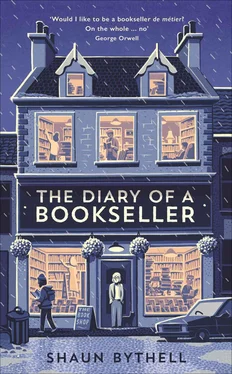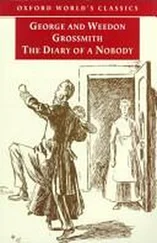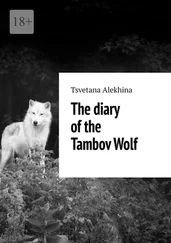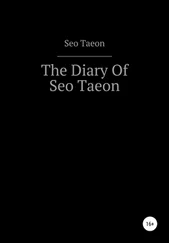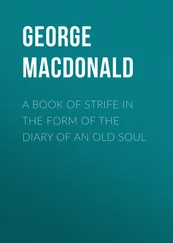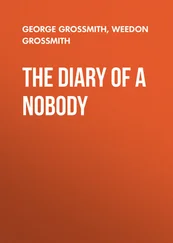Online orders: 0
Books found: 0
Katie was in today. She spent most of the day pricing up fresh stock and putting it on the shelves.
I lit the stove in the shop for the last time until autumn sets in. From May to October it’s warm enough in the shop for the fire not to be necessary. Also the swallows, swifts and house martins arrive in May, and the martins nest in the log store. I don’t like to disturb them once they have started breeding.
No orders this morning, which usually means that there is a problem with Monsoon, so I emailed them and hopefully they will fix it.
A customer brought in a collection of books about Burma which he wanted to sell: probably fifty titles. He declined my offer of £85.
After lunch I drove to Dumfries to pick up Anna from the railway station – she is back for the Spring Festival and hates to miss out on anything that’s going on in Wigtown. I sometimes suspect that she misses the cat as much as she misses me, from the attention she lavishes upon him.
When we returned from Dumfries, we were met by a customer who asked if we stock old volumes of The Scots Magazine. On hearing that we do not, for some reason he took this as the signal to tell me – at considerable length – which issues he was looking for, and why.
Just before closing I checked the inbox and found an email from Rob Twigger telling me that he is coming up to visit tomorrow.
Till total £147.50
14 customers
It is not true that men do not read novels, but it is true that there are whole branches of fiction that they avoid. Roughly speaking, what one might call the average novel – the ordinary, good-bad, Galsworthy-and-water stuff which is the norm of the English novel – seems to exist only for women. Men read either the novels it is possible to respect, or detective stories.
George Orwell, ‘Bookshop Memories’
Despite the success of the television serialisation of The Forsyte Saga , the ‘Galsworthy-and-water’ type of books to which Orwell refers are entirely overlooked by today’s customers, and Jeffery Farnol, Dennis Wheatley, Warwick Deeping, O. Douglas, Baroness Orczy – so rapaciously consumed in their heyday – now only serve as resting places for dust and dead bluebottles. As regards women being greater fiction readers, Orwell’s gender stereotyping is still largely true today, although his assertion that only men ‘read … the novels it is possible to respect’ by today’s standards sounds – at the very least – anachronistic. My own taste must be unusual by his reckoning in that I prefer fiction (but not detective stories). Most non-fiction, unless it’s a passion (such as Galloway – I am currently reading Dane Love’s book The Galloway Highlands ), seems be pretty hard work as far as I can see, but the immersive capacity of a good novel to transport you into a different world is unique to the written word.
On the whole (in my shop at least) the majority of fiction is still bought by women, while men rarely buy anything other than non-fiction, a trend borne out in a completely unscientific experiment carried out by the author Ian McEwan a few years ago in London. He decided to give away free copies of one of his books during a busy lunchtime. Almost all of those who showed appreciation were women, and those who responded with suspicion were nearly all men. This led McEwan to conclude in The Guardian that ‘When women stop reading, the novel will be dead’ – a sentiment with which Orwell might, up to a point, have agreed. It is hard to predict what customers will buy, although the number of men who head straight to the railway section is uncanny.
During the Wigtown Book Festival (which takes place over ten days at the end of September), it is always the non-fiction events that can be relied upon to draw the largest audiences. Poetry seems to be the one thing for which there is barely any audience at all – a sad fact that is reflected in the shop. Poetry contributes very little to the daily takings. Heaney, Hughes, Auden, Eliot, MacDiarmid, Wendy Cope and a smattering of others tick over, but the Tennysons, Cowpers, Brownings and Lowells sit heavily on the shelves, only occasionally disturbed by the hand of a curious customer. They are poetic fossils that perhaps one day will be unearthed and dusted off by literary paleontologists.
Online orders: 0
Books found: 0
No orders again today and still no word from Monsoon.
Nicky arrived at the shop dressed in her medieval tabard and a pair of trousers so yellow that they had the appearance of the yolk of an egg that has been exposed to dangerous levels of radiation. She announced that she is going to supplement her income by turning her van into a mobile DIY shop. She disappeared during her lunch break and turned up later with an enormous piece of fungus that she had cut from a tree near the Martyrs’ Stake, just at the bottom of Wigtown Hill, a hundred yards past the last house in the town. She has decided that it is edible and is most likely Chicken of the Woods. She spent much of the day trying to convince me to eat some. The only thing I’m convinced of is that she is trying to kill me.
Monsoon eventually replied to my email and logged on to our system remotely, and repaired whatever was blocking the orders.
In the middle of the afternoon, as Nicky and I were in the middle of an argument about evolution (we had just reached the usual ‘you might be a monkey but I’m not’ stage), Mr Deacon appeared. He had, apparently, lost his copy of A Gambling Man before he’d finished it and wanted to order another one. The evolution argument resumed as soon as he had left.
Till total £99.50
10 customers
Online orders: 3
Books found: 3
Nicky was in again today. I opened the door to find Twigger waiting outside with his bag. I had forgotten to leave any doors open before I had gone to bed last night. He had slept in the garden. I apologised, to which he replied, ‘No problem, man. I like sleeping outside.’
Today was the first day of the Wigtown Spring Festival. This is a small series of events organised by the Association of Wigtown Booksellers. Without much of a budget for visiting speakers or for promotion, it is by necessity a small affair and barely generates a fraction of the footfall of the September festival, whose budget is now close to £400,000. Events in the Spring Festival take place in the shops and smaller venues which we can afford, and are usually attended by locals.
Nicky went back down the hill to cut more Chicken of the Woods. She fried it up in the kitchen. Twigger is running a book to see if she is still alive tomorrow.
Anna and I spent much of the day moving furniture in the drawing room in preparation for a Whisky Supper, which took place upstairs in the drawing room. Sixteen tickets sold. The catering was done by Maria, an Australian woman who moved to the area with her husband and children a few years ago. He is a teacher, and she set up a catering business. She is very enthusiastic. Everything, regardless of whether it is or is not, is ‘fantastic’. The meal was superb, as was the whisky which we all drank to excess.
Nicky spent the night in the festival bed and promised to open the shop in the morning so that I could lie in.
Till total £182.49
13 customers
Online orders: 4
Books found: 4
There was no sound of activity from downstairs at 8.30 a.m., so I went down and opened the shop. Nicky was still fast asleep. Twigger, Nicky and I were all suffering this morning after last night’s Whisky Supper.
Читать дальше
